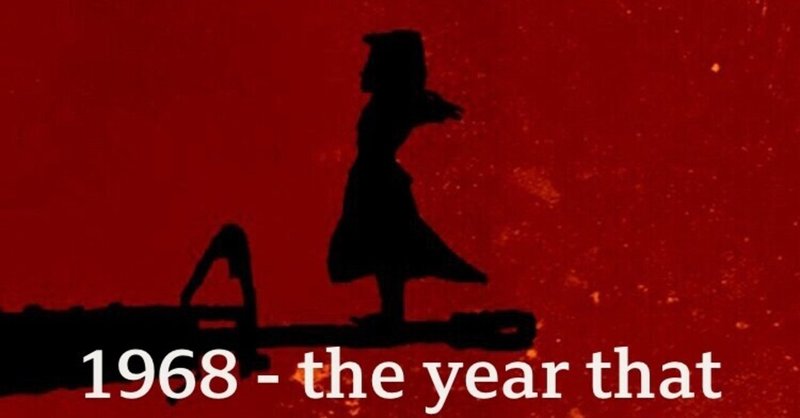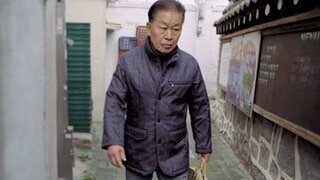
1968 - the year that haunts hundreds of women ⑶
by Ly Truong
2020年3月27日にリリースされ韓国で大変な論争を起こした、英国BBCのライダイハン特集記事を3回に分けて和訳したもので、最終回の今回はライダイハンの真実を追及する人たちにライトを当てています。
元サイト
https://www.bbc.co.uk/news/extra/lhrjrs9z9a/vietnam-1968
Looking for answers
答えを探して
One woman who has made it her life’s mission to discover the truth is South Korean researcher Ku Su-jeong. While doing a PhD in Vietnamese history in the 1990s, she was given a document by an official in Vietnam’s foreign ministry, describing atrocities carried out by the South Koreans.
真実を発見することを人生の使命としてきた一人の女性がいる。韓国の研究者ク・スジョン氏だ。発端は、彼女が1990年代にベトナム史の博士号取得のための研究をしていた時、ベトナム外務省の役人から韓国人による残虐行為を記した文書を渡されたことだった。
She managed to finally secure an unauthorised copy from a Vietnamese government official for a fee, and has spent the past 20 years visiting Vietnamese villages and talking to survivors. She believes about 9,000 South Vietnamese civilians were killed in about 80 massacres carried out by the South Koreans, although there is no way of independently verifying her research.
彼女は更にベトナム政府の役人に賄賂を渡して、なんとか無許可のコピーを入手し、20年という時間をベトナムの村々を訪れ、生存者と話をすることに費やした。彼女は韓国人によって約80回の虐殺が行われ、約9万人の南ベトナムの民間人が殺されたと考えているが、彼女の調査を独自に検証する方法はない。
Ku believes there are still other deaths unaccounted for and often hears from people who want her to investigate alleged extra-judicial killings. “I still receive calls from people who ask me to come to their village,” she says. Her lifetime of research has come at a personal cost.
ク氏は他にもまだこの数字に入っていない死亡者がいると考えている。なぜなら、司法管轄外の殺害の疑いを調査してほしいという電話が頻繁にかかってくるからだ。「今でも、自分の村に来てほしいという電話がかかってくるんです」。 彼女が生涯をかけたこの調査は、全て彼女の私財を注ぎ込み行われている。
Two months after her findings were published in a South Korean newspaper article in April 1999, about 2,000 veterans in their 50s, all wearing army uniform, gathered in front of the paper’s headquarters in Seoul. The men trashed the building and some also vandalised Ku’s home, she says. She and her mother had to move to a high security apartment.
1999年4月に韓国の新聞記事に掲載されて2カ月後、ソウルの同紙本社前には軍服を着た50代の退役軍人約2000人が集まった。 彼らは建物を荒らし、中にはク氏の家を荒らした者もいたという。彼女と母親は、警備の厳重なアパートへの引越しを余儀なくされた。

ク氏の調査の掲載に抗議して新聞を燃やす退役軍人たちと止めようとする警察隊
The South Korea Veterans’ Association also attempted to sue her for defamation and fraud, although the case was dropped. It is not possible to prove who was responsible for the massacre that killed Nguyen’s family in Ha My. But one South Korean veteran, Ryu Jin-sung, says his division was responsible for a similar massacre just two weeks before the Ha My killings.
韓国退役軍人協会も彼女を名誉毀損と詐欺で訴えようとしたが、不起訴となった。ハミでグエンさんの家族が殺された大虐殺の責任は誰にあるのかを証明することはできない。しかし、韓国の退役軍人であるリュ・ジンソン氏は、ハミ事件のつい2週間前に、彼の部隊が同様の大虐殺を行ったと話す。

Ryu Jin-sung
Ryu’s company was on patrol when a bullet was fired at them from the direction of Phong Nhi and Phong Nhat, two villages a few miles from Ha My. Attacks began as retaliation - the company dividing into three units to attack the villages from three different directions. Ryu’s unit was the first to move out, after his comrade shot dead an unarmed elderly man. That evening he heard his comrades boasting about killing young children and women, and the next day he saw bodies of civilians laid out on the side of the road.
リュの所属した中隊がパトロール中に、ハミから数マイル離れたフォンニ村とフォンニャット村の方向から彼らに銃弾が発せられた。報復のための攻撃であった。そこで中隊は3つの部隊に分かれてそれぞれ3つの方向から村を攻撃した。 同志が非武装の老人を射殺した後、リュの部隊は最初に撤退した。その日の夜、幼い子供や女性を殺したと自慢げに話す仲間の声を聞き、翌日には道端に民間人の死体が転がっているのを見たという。

“There was a large crowd. When we got there, they yelled and screamed at us. It felt as if they were about to kill me, their eyes fixed on me. I used the barrel of my rifle to make my way through. I saw corpses, I saw bereaved families - their anger. Even today it’s still very vivid.” Ryu says that those who deny a massacre took place in Phong Nhi and Phong Nhat are either misinformed or unwilling to admit the truth.
「大勢の人だかりができていました。私たちが到着すると、彼らは私たちに向かって怒鳴ったり叫んだりしていました。まるで私を殺そうとしているかのような激しい眼差しで私を見つめていました。私はライフルの銃身を使って群衆の中を通り抜けました。転がっている死体、遺族の怒りが今でも鮮明に記憶が甦るのです。」リュ氏はフォンニとフォンニャットでの虐殺を否定する人たちは、誤りの情報で騙されているか、または真実を認めようとしないかのどちらかだと我々に語った。
The BBC arranged a meeting between Ryu and Nguyen, now 63, in a restaurant in Seoul. Both say, like many Vietnamese traumatised by the war, that they are haunted by ghosts. Ryu by that of the old man he saw being shot in Phong Nhi and Phong Nhat; Nguyen by her younger brother.
BBCはソウルのレストランでリュ氏とグエンさん(現在63歳)の会談を企画した。2人は、戦争で心に傷を負った多くのベトナム人と同じように、幽霊に取り憑かれていると語った。リュ氏はフォンニとフォンニャットで撃たれた老人の幽霊に、また、グエンさんは弟の幽霊に取り憑かれていると言う。
After swapping stories of the war, Ryu finally reads out a simple phrase he has prepared in advance in Vietnamese. “I am sorry,” he says. Nguyen simply nods in acknowledgement. He serves her some food, she smiles, and they continue with the meal. As she leaves the restaurant, Nguyen says she feels a burden has been lifted, but is still holding out hope for an official apology from Seoul.
戦争の話を互いにした後、最後にリュ氏は事前に用意しておいたベトナム語の簡単なフレーズを読み上げた。「申し訳ありません。」グエンさんは黙って頷いた。彼が料理を差し出し、彼女は微笑み、食事は続いた。 レストランを出る時彼女は心の重荷が軽くなった気がする、と言いながらも、やはりソウルからの公式謝罪を期待していると強調した。

Nguyen and Ryu meet
Asked for comment, the South Korean government told the BBC in a statement that since establishing formal diplomatic relations in 1992, the two countries “have made together continuous efforts to develop their bilateral relations in a future-oriented manner on the basis of the shared view that they should put their unfortunate past behind them and move forward to the future”.
コメントを求められた韓国政府はBBCで以下の声明を発表した。1992年に正式な国交を樹立して以来、両国は「不幸な過去を過去に置き、未来に向けて前進すべきだという共通の見解に基づき、未来志向的方法で二国間関係を発展させるための継続的努力を共にしてきた。」


Ryu, then and now
South Korea is now one of Vietnam’s largest investors, with economic giants like Samsung and LG Electronics pouring billions of dollars into building factories there.
韓国は今やベトナムへの最大の投資国家の1つであり、サムスンやLG電子のような大企業が数十億ドルを投じてベトナム工場を建設している。
South Korean journalist Koh Kyoung-tae, who first published researcher Ku Su-jeong’s controversial findings, says the idea that South Korean soldiers may have carried out atrocities doesn’t fit with the nation’s sense of itself as a victim. “We Koreans say that we have 5,000 years of history and we’ve always been the victim. We’ve been colonised by Japan, Mongolia, China… and we endured it. It’s kind of like we’re proud of our victim mindset.”
韓国人ジャーナリストのコ・ギョンテ氏は、研究者ク・スジョン氏の物議を醸した調査結果を最初に発表した人物だ。彼は、韓国軍兵士が残虐行為を行ったのではないかという考えは、自国が被害者だと考える韓国人の感覚とは合わないのだと語る。「私たち韓国人には5千年の歴史があると言いますが、韓国は常に被害者でした。日本、モンゴル、中国に植民地化されて耐えてきた、そんな被害者意識を誇りに思っているようです。」

Koh Kyoung-tae
South Korea also spent decades lobbying Japan for a similar apology over the hundreds of thousands of South Korean women forced to work as World War Two sex slaves.
韓国はまた、第二次世界大戦中に何十万人もの韓国女性が性奴隷として働かされていたことについて、日本に同様の謝罪を求めるロビー活動を何十年も続けている。
Nguyen, who is deaf in one ear and seriously scarred all over her body as a result of her injuries, blames her own country for ignoring the issue. The Vietnamese government turned down two BBC requests to film for an accompanying documentary. “Vietnam is afraid of anything that affects the relationship between the two countries so they don’t want to clarify it,” she says.
グエンさんは今も片耳が聞こえず、体中には深い傷痕が残っている。ベトナム政府は、BBCからの同行ドキュメンタリーの撮影依頼を2度却下していた。 「ベトナムは両国の経済的関係に悪い影響を与えることを恐れているので、それを明らかにしたくないのです。」と彼女は言う。
Back in Phu Hiep, Tran Thi Ngai, now 79, is also still wrestling with the fallout of the war. She says her children have faced a lifetime of abuse and discrimination, mocked for being “lai dai han” (the Vietnamese term for the children of Vietnamese and Korean parents). Her father was tortured and beaten to death under house arrest in 1977 as punishment for allowing his daughter to have relations with a South Korean. Tran herself was put in detention or prison three times between 1975 and 1978.
フーヒエップに戻って暮らし、現在79歳のトラン・ティ・ガイさんもまた、戦争の後遺症と格闘している。 彼女によると、彼女の子供たちは、「ライ・ダイ・ハン」(ベトナム人と韓国人の間に生まれた子供を指すベトナム語)とあざ笑われながら、生涯に渡って虐待と差別に晒されてきたという。彼女の父親は、娘と韓国人との関係を許した事への罰として、1977年に自宅に軟禁され拷問を受け、殴り殺された。トランさん自身も1975年から1978年の間に3回、拘置所や刑務所に入れられた。
While it has not been possible to verify her specific case, the aftermath of the Vietnam War was an intense period of retribution, the country still riven with division.
彼女の個別な事例についての確認はできていないが、ベトナム戦争後の余波とは熾烈な報復の時代であった。そして未だにベトナムはそのために分裂状態にあるのだ。
“An apology might not be worth much, but it means a lot to us”
Nguyen Thi Thanh
「謝罪には大した価値がないかもしれないが、我々にとっては大きな意味がある」
グエン・ティ・タイン
Vietnamese pressure group Justice for Lai Dai Han is simply pushing for an apology to the victims of rape by South Korean soldiers and those conceived as a result. There are estimated to be about 800 of the victims’ children still alive.
ベトナムの圧力団体「ライダイハンのための正義」は、韓国兵によるレイプの被害者とその結果妊娠した人たちに謝罪を求めているに過ぎない。被害者の子供たちのうち、約800人がまだ生きていると推定されている。
One prominent campaigner for the group is Tran Thi Ngai’s son, Tran Van Ty, who was beaten up regularly on his way to school for having a South Korean father. Former UK Foreign Secretary Jack Straw, the international ambassador for the group, says there is no reason why an apology should adversely affect relations “if handled properly.
同団体の著名な運動家の一人に、韓国人の父親を持つことを理由に通学路で定期的に殴られていたトラン・ティ・ガイさんの息子トラン・ヴァン・タイさんがいる。 同団体の国際大使を務めるジャック・ストロー元英国外務大臣は、謝罪が「適切に処理されれば」関係に悪影響を及ぼす理由はないとしている。
“Vietnam and South Korea have agreed, ‘Let’s go forward, let’s not look back,’ which I understand, but you’ve got to make exceptions to that sometimes. “In some cases, in order to look forward you’ve got to settle things in the past.” The group is pushing for an inquiry by the UN Human Rights Council.
「ベトナムと韓国が合意した、『前を向いて生きよう、振り返らないようにしよう』は理解できるのだが、時には例外を設ける必要もある。「場合によっては、前を向くためには過去のことに決着をつけなければならない。」同団体は、国連人権理事会による調査を要求し続けている。
Survivors of the massacres allegedly carried out by the South Korean military also filed a legal case against the South Korean government this month. If the judge finds grounds to pursue it, the first hearing could be heard as early as this summer - though it is expected to take several years to reach a conclusion. “An apology might not be worth much, but it means a lot to us,” says Nguyen Thi Thanh.
韓国軍によって行われたとされる虐殺の生存者たちも今月、韓国政府に対して訴訟を起こした。 裁判官がそれを追求する根拠を見つけた場合、最初の公聴会は早ければ今年の夏にも開かれる可能性がある。恐らく結論に達するまでには数年かかると予想される。 「謝罪にはあまり価値がないかもしれませんが、私たちにとっては大きな意味があります」とグエン・ティ・タンさんは言う。
A bronze sculpture by British artist Rebecca Hawkins is meanwhile touring the UK, inspired by the story of Tran Thi Ngai and her son. “Mother and Child” shows two figures trapped by a strangler fig - a plant native to Vietnam which smothers the trees it wraps around. “We need the South Koreans to acknowledge what happened,” Tran says. “They sent troops to Vietnam - it wasn’t us who went to their country.”
イギリス人芸術家レベッカ・ホーキンスのブロンズ彫刻は、トラン・ティ・ガイとその息子の物語に触発された作品で、現在イギリス各地で展示を行なっている。「母と子」は、「絞め殺す木」と呼ばれるベトナム原種の蔓科のいちじくに捕らわれた2人を表現したものだ。 「韓国人に、あの当時何が起こったのかを認めてもらう必要があります。」とトランさんは話す。「彼らがベトナムに軍隊を派遣したのです。私たちが彼らの国へ押しかけたのではありません。」

Left: Tran Thi Ngai with her son Tran Van Ty and the artist Rebecca Hawkins / Right: The sculpture “Mother and Child” 左:Tran Thi Ngaiさんと息子のTran Van Tyさん、そしてアーティストのRebecca Hawkinsさん/右:彫刻「母と子」
